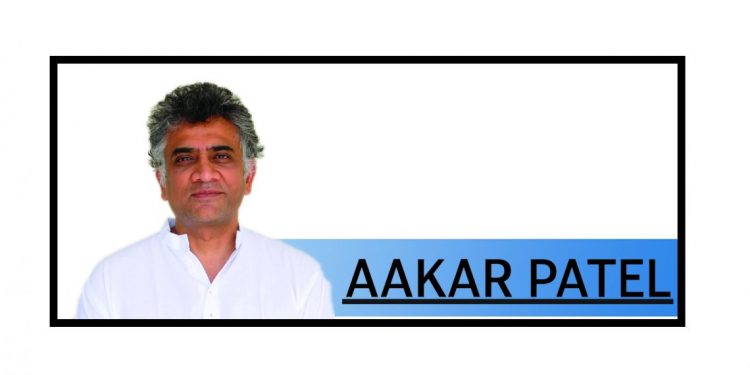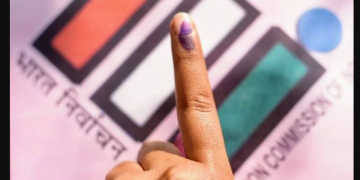Acounterfactual is thinking about something that might have happened but did not happen. As we celebrate yet another Republic Day, there is occasion to think of a different kind of constitution, one that India chose against.
As Congress president in 1946 Abul Kalam Azad concluded that undivided India’s constitution “must from the nature of the case” be federal. This, he explained, meant that it should be framed to give complete autonomy to the provinces in “as many subjects as possible,” while addressing national unity.
This would attend to the problem at the root, which Azad felt was not independence — since that was a given in 1946 — but of settlement, and that the Muslims were troubled by what an independent India would bring. Federalism would be autonomy to the provinces and that the federal government would compulsorily control defence, foreign affairs and communications. What remained of government would be the preserve of the provinces, save for those which with mutual consent could be shared between the two. India was, Azad wrote, a country of homogenous units in different provinces, and that made his plan seem natural. He did not however discuss it with others in the Congress, because he says as president he had been authorised with “full powers.”
He met the Cabinet Mission on Saturday, 6 April, 1946 and then briefed the Congress Working Committee the following Friday, the 12th. Here he writes that he was able to convince them of his plan’s soundness, especially Gandhi, who “expressed complete agreement.”
Also Read : India’s military prowess on full display at Republic Day parade
Sardar Patel asked what would happen to things like finance and currency. Gandhi, replying on Azad’s behalf, said there was no reason to assume provinces would not want a unified policy in such things. Azad in his book does not record what, if anything, Nehru said. Having apparently got the party behind him, Azad issued a statement three days later, 15 April. In the greater part of this, he attempts to repudiate the call for Pakistan, pointing out what he sees as its flaws. Towards the end, he says he has succeeded in making the Congress accept his formula, which secures “whatever merit the Pakistan scheme contains while all its defects and drawbacks are avoided.”
The fear of Muslim majority areas of interference in a Centre dominated by Hindus he had addressed through his scheme of provincial autonomy. It had two lists of subjects, one compulsorily with the Centre and one optional, which the province could choose to give the Centre. Muslim-majority provinces would have autonomy but also retain influence on issues that affected India as a whole.
Both a unitary state and a two state solution would fail, he warned, the latter because too many Muslims would remain in a divided India, with even less say. “I am one of those who considers the present chapter of communal bitterness and differences as a transient phase in Indian life,” Azad wrote.
The Cabinet Mission Plan that the British released a month later, on 16 May, does not differ much from Azad’s except in one way. Instead of autonomy at the level of province or state, it was at the level of region. India would be divided into three parts (aligning with what is today Pakistan, India and Bangladesh) to reflect local majorities, and these three parts would have provincial autonomy under a Centre. Princely states would retain autonomy except for the powers ceded to the Centre.
Azad felt the Congress should accept this proposal. He writes Jinnah was initially opposed to it, because he had gone too far down the road with the Pakistan demand. But he felt he could not negotiate better terms than the ones on offer and the Muslim League Council on his advice voted in favour of the Cabinet Mission Plan. On 16 June, the Congress Working Committee also endorsed the plan.
Azad wrote: “The acceptance of the Cabinet Mission Plan by both the Congress and the Muslim League was a glorious event in the history of the freedom movement in India. It meant that the difficult question of Indian freedom had been settled by negotiation and agreement and not by methods of violence and conflict. It also seemed that the communal difficulties had been finally left behind. Throughout the country there was a sense of jubilation and all the people were united in their demand for freedom. We rejoiced but we did not know then that our joy was premature and bitter disappointment awaited us.” On 7 July, the AICC endorsed it.
The question of the Congress presidency also arose that month. Azad had been elected in 1939 for a year but had remained in the post till 1946 by default because after the Second World War broke out, the Congress was banned and its leaders jailed. He chose not to contest and to throw his weight behind Nehru, instead of Patel, a decision he would come to regret. Patel would have seen his plan through, while Nehru, in Azad’s opinion “gave Jinnah the opportunity to sabotage” it.
On 10 July, at a press conference, Nehru said the Congress was “unfettered” by the Cabinet Mission Plan and could do as it chose in the Constituent Assembly, where it had a majority. On 27 July, the Muslim League Council met under Jinnah and now rejected the Cabinet Mission Plan and reiterated its demand for Pakistan. We know what happened after that. What might have been had the plan been accepted and undivided India preserved but with a weaker Centre we will never know.
By Aakar Patel






































